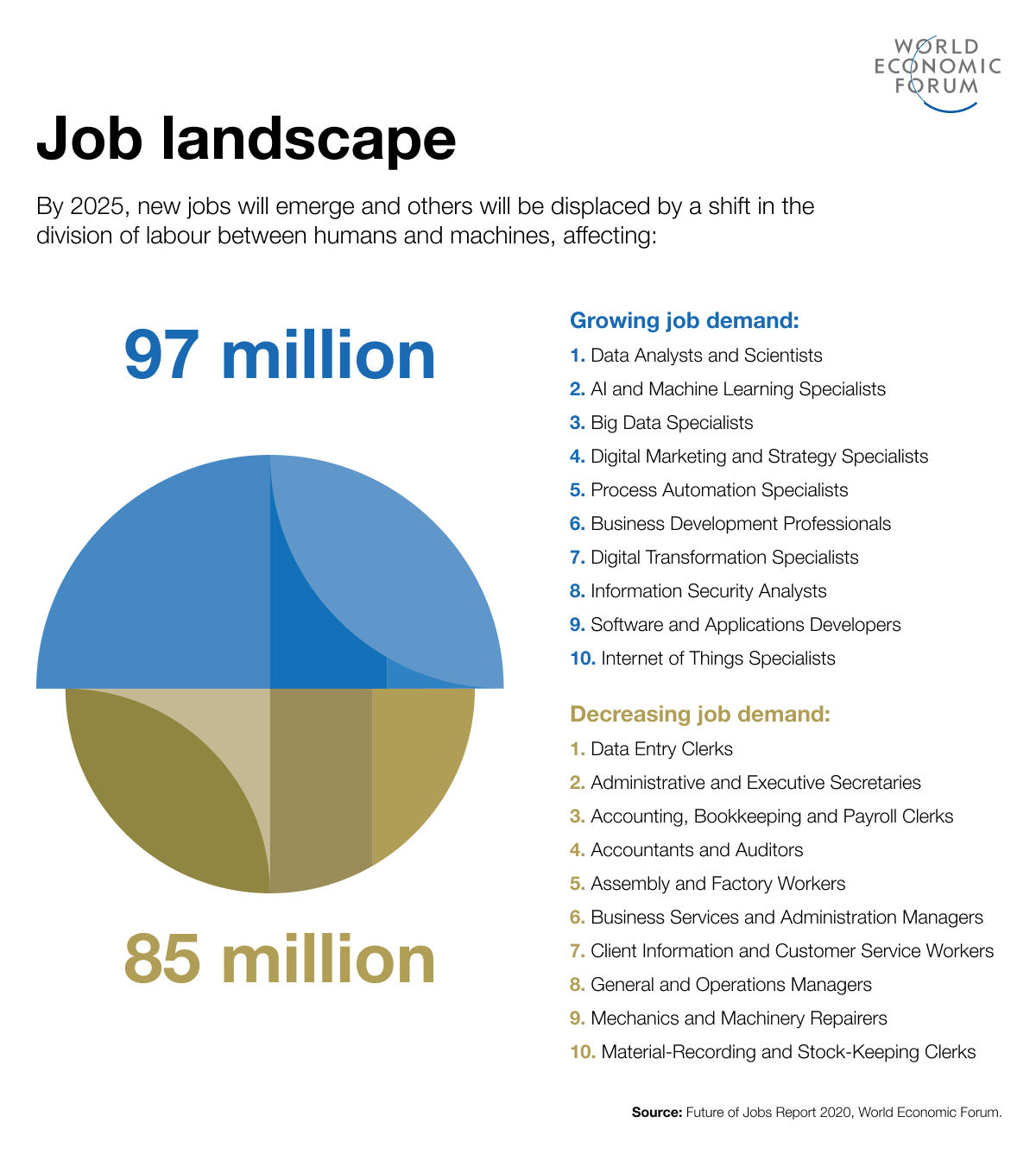That’s the million-dollar question everyone is asking as the integration of AI technologies into various industries becomes more widespread. According to reports from reputable sources such as the World Economic Forum, PWC, and McKinsey, the job market will experience significant shifts due to the advancements in automation and AI technologies. In this article, we will explore the potential impact of AI on the Future job market and identify strategies for future job security.
AI Job Displacement Statistics
The World Economic Forum predicts that by 2025, approximately 85 million jobs will be replaced by AI.
World Economic Forum

PWC estimates that around 30% of all jobs will be automated by the mid-2030s.
PWC
Goldman Sachs predicts that a staggering 300 million jobs will be substituted by AI soon.
Goldman Sachs
Demographic Disparities in AI Impact
Recent data analysis reveals that AI might disproportionately impact different demographic groups. The breakdown reveals that Asians are likely to be most affected by AI, with 24% of workers in this demographic facing potential job displacement.
On the other hand, those with higher educational qualifications, such as Bachelor’s degrees, are more open to AI-related job loss than those with lower educational attainment levels. These findings suggest that the impact of AI on the future job market will not be uniform across different demographic groups.
Jobs at Risk of Automation
Several job roles are at a higher risk of being automated, including customer service representatives, receptionists, accountants, salespeople, researchers, warehouse workers, insurance underwriters, and retail employees.
Conversely, professions like teachers, lawyers, judges, directors, managers, CEOs, HR managers, psychologists, psychiatrists, surgeons, and computer system analysts are considered less likely to be impacted by AI. These findings suggest that individuals in certain job roles may need to consider upskilling or reskilling to stay relevant in the job market.
Rising Skill Sets in Demand
In response to the changing job market influenced by AI, individuals are encouraged to develop specific skill sets on the rise.
According to the World Economic Forum, the top 10 skills in demand include creative thinking, analytical thinking, technological literacy, curiosity, resilience, flexibility, system thinking, AI and Big Data proficiency, motivation, self-awareness, talent management, and service orientation.
World Economic Forum
Developing these skills can help individuals navigate the job market and stay competitive.

High-Paying AI Jobs
For those considering a career in AI-related fields, the top 10 highest-paying jobs in this sector are projected to offer lucrative salaries by 2024.
These roles include machine learning engineers, AI engineers, data scientists, computer vision engineers, natural language processing engineers, deep learning engineers, AI research scientists, business development managers, AI product managers, and AI consultants.
These high-paying jobs suggest that AI-related fields may offer promising career opportunities for individuals looking to future-proof their careers.
Strategies for Future Job Security
To navigate the evolving job market shaped by AI, individuals are advised to adopt proactive measures to secure their professional future. Continuous learning, sharpening soft skills, embracing agility and adaptability, and anticipating industry trends are essential strategies to thrive in an AI-driven economy. Individuals can thrive in a dynamic job market influenced by AI advancements by leveraging innovation and differentiation.
Conclusion
In conclusion, the impact of AI on the future job market may create challenges to traditional job roles. Still, individuals can proactively position themselves for success by acquiring in-demand skill sets, staying agile, and anticipating future industry trends. Individuals can thrive in a dynamic job market influenced by AI advancements by leveraging innovation and differentiation. The impact of AI on the job market is inevitable, but with the right strategies, individuals can future-proof their careers and thrive in an AI-driven economy.

